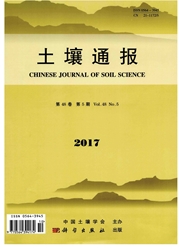

 中文摘要:
中文摘要:
土壤中的氮素因土壤类型和季节变化产生异质性。在长期的进化过程中,植物适应各自的氮营养生境,形成了对NO3^-/NH4^+吸收的分子机制。饱和高亲和传输系统(HATS)中,植物在不同的转录基因控制下吸收NO3^-/NH4^+,表现出对两种氮源的偏选性。这种偏选性主要取决于植物种的特性,但是NO3^-/NH4^+的吸收受光照、介质N强度、pH值、外源氨基酸和温度等生境因子的影响,同时植物的营养生境也因NO3^-/NH4^+的吸收被深刻改造。硝酸还原酶(NR)在氮同化过程中作用于NO3^-还原阶段,其活性受各种生境因子的制约,影响植物对NO3^-吸收利用。
 英文摘要:
英文摘要:
Heterogeneity of soil nutrient availability results from different soils and seasonal changes.Plants are frequently well adapt to their nutrition habitat during a long evolution process,and have evolved mechanisms to regulate NO3^-/NH 4^+.Physiological studies have demonstrated that the NRT2 family encoding putative HATS for NO 3^-and the AMT1 family encoding putative HATS for NH 4^+.The plants apparent prefer nitrate or ammonium (NO 3^-or NH 4^+) in their nutrient regimes,which was rest with plant species.NO3-/NH 4+ uptake could be affected by some habitat factors,such as light,N concentration,pH,exogenous applications of amino acids and temperature of roots.The nutrition habitat was sharp changes because of NO3^-/NH 4^+ uptake.Nitrate reductase (NR) was responsible for NO 3^-reduction.NR activities were restricted by some habitat factors,and affected NO 3^-uptake.
 同期刊论文项目
同期刊论文项目
 同项目期刊论文
同项目期刊论文
 期刊信息
期刊信息
